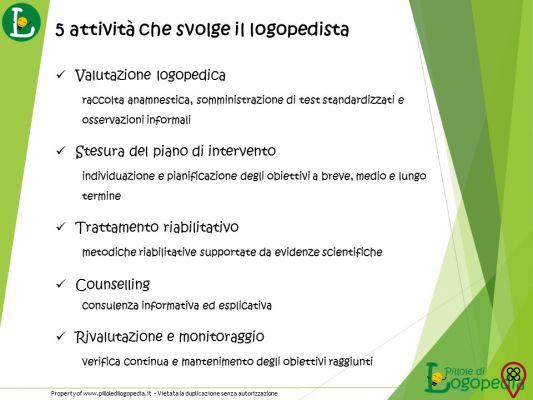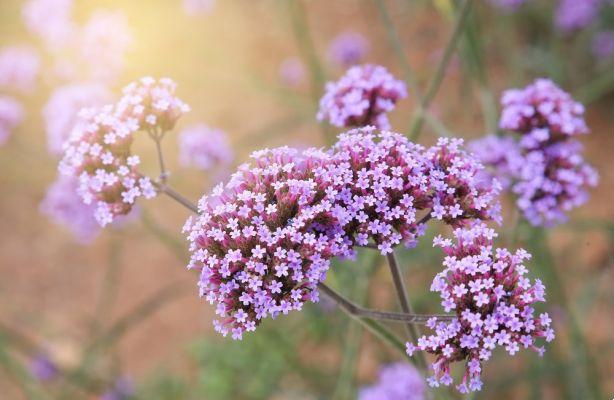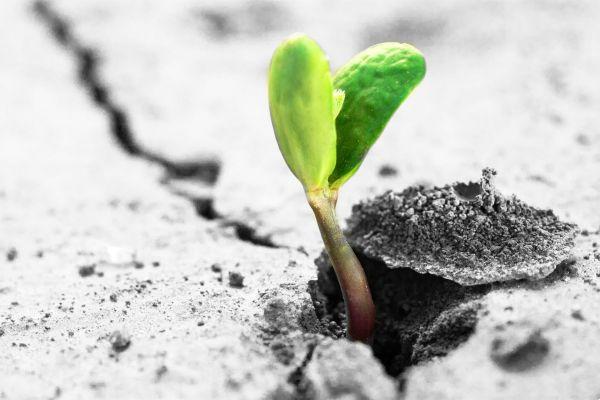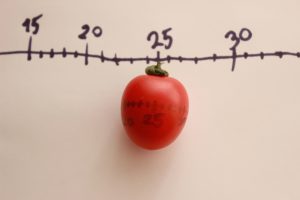Have you ever heard of Ayurveda or Ayurvedic Medicine? If your concern is to develop optimal physical and mental health through a set of practices, including a healthy diet and based on your metabolism and biotype, this Eastern philosophy may be what was missing in this mission.
In this article, we are going to talk all about what is the oldest known health science. Read the information carefully to find out about this wonderful universe that aims not only at a natural and healthy lifestyle, but also armored and healed mind, body and spirit.
A little history
The history of Ayurveda dates back over 5 years ago. Because it is so ancient, it is known as the “mother of all health”, as it is also the root of many other forms of medicine. Of Sanskrit origin, the term “Ayurveda” means “science of life” or “knowledge of life” (“ayu”: life; and “veda”: knowledge; truth).

According to Indian mythology, the origin of Ayurveda is divine: who created this knowledge was the lord of the Universe – Brahma –, long before human existence. All the knowledge of Ayurveda was contained in one hundred thousand verses, and Brahma dictated them word for word to Daksha, son born of his mind.
Then, this knowledge was transmitted to two brothers who were excellent healers and performed great feats through Ayurveda, including even surgeries of some complexity. The next to be bestowed with Ayurvedic knowledge was the god of the skies and rain, Indra.
Reaching out to humanity
The knowledge of this ancient science came to the world of men in an attempt to help Indra to solve problems and ills that humanity had been going through: immoralities, miseries and epidemics were deteriorating people's physical, mental and spiritual health. Even the animals were being decimated because of all that toxicity.
Indra then blessed a group of scholars, sharing with them all about Ayurveda, and so these sages drew up several treatises on all branches of this medical practice.
Unfortunately, because of its longevity and the fact that it has been taught orally for thousands of years, much of its content has been lost. And what is written about their knowledge represents a small part of this philosophy, much of it also still in Sanskrit.
Although there is a lot to discover about Ayurveda, we are increasingly seeing the adherence of many people, especially here in the West, to this alternative medicine. So it is very important to know how it works and what benefits it can bring to our lives. Keep following the article to learn more about it.
How does Ayurveda work?
For Ayurveda, each person is a universe within himself. Therefore, it focuses on prevention and the individuality of being, arguing that the state of health depends on a series of factors that supplant the physical disease itself.
Ayurveda understands that it is the accumulation of toxins, generated by energy imbalances resulting from the problems that afflict us, that makes us sick. Our lifestyle, our emotions and the way we treat our physical body are the factors that cause these imbalances.

As it is a multidisciplinary therapy, it uses several treatments capable of meeting all the needs of our body, mind and spirit. We'll talk about these techniques later.
Basically, Ayurveda treats the imbalances that occur in our Ayurvedic biotypes, also called doshas, which contain a combination of the 5 fundamental elements. And that's what we're going to talk about in the following topics.
Ayurveda and the Elements
For Ayurveda, everything that exists in nature is made up of 5 fundamental elements:
1 — Aakash (Space or Ether) — It is the least dense of the elements, coming to be related to the void, paradoxically containing all things. It is the source and “home” of all other elements. It governs the nervous system and is linked to the sense of hearing. Associated characteristics: calmness, receptivity, detachment and heightened sensitivity.
2 – Vayu (Ar) – It governs the respiratory system and is linked to the sense of touch. Associated characteristics: lightness, expansion, clarity and serenity.
3 — Tile (Fogo) – It governs the digestive and muscular systems, the electrical impulse of the heart and the combativeness of the immune system. Associated characteristics: energy, power, vitality and courage.
4 — Jala (Water) – It's a little dense, but not as dense as a solid, but because it's fluid, it molds to any space, expanding to fit. It governs the circulatory and lymphatic systems, as well as the kidneys and genitals. It is linked to the sense of taste. Associated characteristics: emotional skills, harmony, resilience and adaptability.
5 - Prithvi (Earth) - It is the densest of the elements. It governs structures such as bones, muscles and tendons, in addition to the properly physical part of our body. The sense to which it is linked is taste.
Together, these elements form everything a person is. Some can coexist, even being cooperative with each other. Others only survive if they are separated. But everyone needs to be in balance. When one prevails over the others, imbalances and real health problems arise. The combination of these elements results in the doshas, which we will talk about below.
Ayurveda e os doshas
There are three existing doshas: Vata, Pitta and Kapha. All people have different amounts and associations of these elements in the body.
They are born with a balance in their distribution. It is throughout life that the doshas become out of harmony — and the main cause is our lifestyle. The result is a host of physical and mental illnesses and disorders.
See, below, the main characteristics of the two doshas:
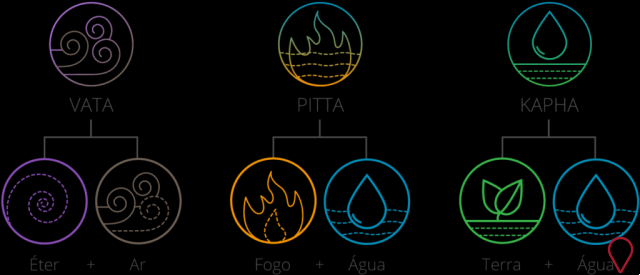
1 — Vata – ruling elements: Air and Space/Ether
Of Sanskrit origin, “vata” means “that which moves”. It governs everything that moves in the body: blood, neurons, muscles, etc. It is associated with fast metabolism, movement, insight and communication skills; weakness, tiredness and anxiety.
2 — Pitta – ruling elements: Fire and Water
In Sanskrit, it means "that which digests things". It governs the digestive system and hormones. It is associated with dynamism, self-confidence and energy; as well as irritability and criticality.
3 – Kapha – ruling elements: Earth and Water
The Sanskrit meaning is "that which holds things together". is responsible for giving nervous system support and nutrition, in addition to lubricating the joints and the digestive and respiratory tracts. It is associated with stability, calm and responsibility; boredom, tiredness and sadness.
In Ayurveda, the way to keep the doshas in balance is through a set of processes. And the main one is through food. She understands that as our structure is formed by everything we eat, then the path to healing begins with the mouth.
For this ancient medicine, each food contains a different energy, so the balance in the diet - that is, the correct proportion, the groups and food combinations suitable for each organism and the schedules, among others - will be a source of healing and prevention. . See this in detail below.
Diets in Ayurveda
As we mentioned above, food in Ayurveda is the key to good overall health. And it proves to be beneficial not only for prioritizing natural foods and avoid processed foods, as well as selecting foods suited to one's dosha.
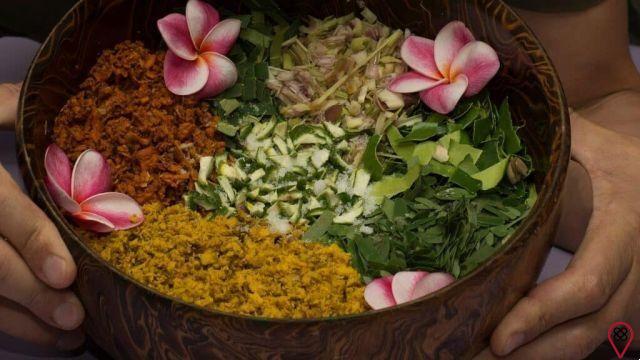
To find out what these foods are, as well as discover your dosha, check out our contents, which provide a complete guide in this regard.
Basically, it's a diet rich in vegetables and meats, organic, herbs and teas, seasonings (the famous masalas, which are mixes of different seasonings), tofu, grains, among others. Foods are grouped and selected for each dosha according to the six flavors, or the six dasas:
— Sweet/sweet: Earth and Water;
- Salty: Water and fire;
- Spicy: Fire and Air;
- Bitter: Air and Space/Ether;
— Astringent: Air and Earth;
- Acid: Earth and Fire.
Each dosha has flavors that should be consumed the most, as well as those that should be avoided. Other than that, the condition of the food also varies in relation to the doshas – for example, there are doshas that need to avoid raw foods, while others must stay away from cold preparations and so on.
In addition to food, there are other practices encompassed in the philosophy of Ayurveda and that act to complement the treatment of the body, mind and spirit, either as a form of prevention or as a means of healing. That's what you'll see next.
Therapies that complement Ayurveda
As we said above, Ayurveda is a multidisciplinary medicine, so it is complemented with various techniques to meet all individual needs, with the aim of providing a comprehensive treatment.
In this way, we have selected some therapies that complement this ancient philosophy to help you find a holistic balance. There is always more to research, but these are the most common.

Various therapies such as meditation, chromotherapy, aromatherapy, biopurification and detoxification.
- Medicinal plants, used in teas, capsules, syrups, among other applications.
— Biopurification and detoxification, to eliminate toxins and everything that causes physical, mental and spiritual discomfort.
— massages, which relieve tension, stress and anxiety and also help improve blood circulation, one of the focuses of Ayurveda.
— Yoga, which is a practice closely linked to Ayurveda. Both are even based on the same pre-Vedic philosophy, called Samkhya. This philosophical system classifies and studies the entire process of the manifestation of the Universe (hence the Ayurvedic understanding of the body as such).
But remember: despite being internationally recognized by the World Health Organization (WHO) for its effectiveness, Ayurveda is a complementary medicine. Do not rule out a consultation with a nutritionist and specialist doctors to resolve any health issue. Also, for your safety, always seek the advice of an Ayurvedic physician. It is he who will most accurately identify your dosha and prescribe an appropriate diet.
You may also like
- Analyze how Ayurveda values disease prevention
- Restore your balance with 7 mental attitudes
- Discover German Medicine
Ayurveda Medicine can be transformative in your life, as it seeks a global cure, focusing on body, mind and spirit. It not only transforms the way we eat, but also the way we relate to food, our bodies and our emotions. How about trying it?



